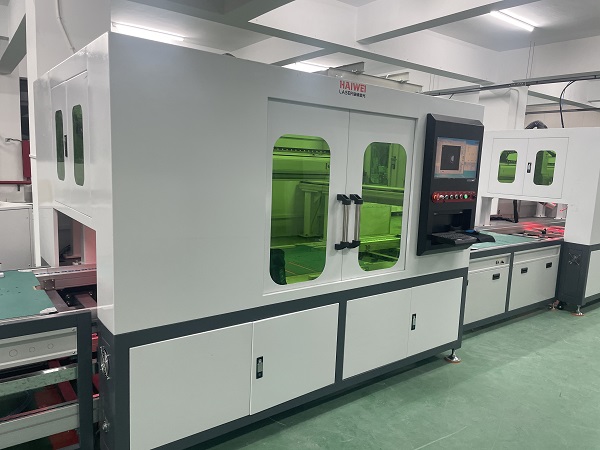The Role of Laser Welding Machines in Automation Lines
In today's manufacturing landscape, the integration of laser welding machines into automation lines is becoming increasingly pivotal for achieving high precision, efficiency, and consistency. For companies considering an investment in such technology, understanding how these machines fit into the broader context of automated production is essential.

Enhancing Precision with Laser Technology
Laser welding offers unparalleled accuracy compared to traditional welding methods. With minimal heat-affected zones and the ability to create fine, clean welds, laser systems are ideal for industries where precision is paramount, such as electronics, medical devices, and aerospace. By incorporating a laser welding machine into your automation line, you can ensure that each weld meets exacting standards without compromising on speed or throughput.
Integration into Automated Production Systems
The true power of a laser welding machine lies in its seamless integration into fully automated production lines. Advanced models come equipped with programmable controllers and interfaces that allow them to communicate with other machinery within the line. This ensures a smooth flow from one process to the next, reducing downtime and increasing overall productivity. Additionally, features like automatic part handling and vision systems enhance the flexibility of the line, accommodating various product designs without manual intervention.
Quality Assurance Through Real-Time Monitoring
One of the standout features of modern laser welding machines is their ability to monitor weld quality in real time. Sensors embedded within the system can detect inconsistencies in weld bead formation, providing immediate feedback that allows operators to make adjustments on the fly. This proactive approach minimizes defects and rework, contributing to higher yields and lower costs per unit.
Cost Efficiency Over Time
While the initial investment in a laser welding machine may be higher than conventional alternatives, the long-term savings can be substantial. Reduced material waste, less post-weld processing, and increased uptime all contribute to a favorable return on investment. Moreover, the longevity of laser equipment means fewer replacements and repairs over its lifespan, further enhancing cost efficiency.
Customization and Scalability
Every industry has unique requirements, and the best automation lines are those that can adapt to changing needs. Laser welding machines offer a high degree of customization, allowing manufacturers to tailor parameters like power settings, beam shape, and focal length to suit specific applications. As production demands grow, these systems can also be scaled up by adding additional units or integrating them into larger, more complex lines.
For businesses looking to stay competitive in a rapidly evolving market, the incorporation of laser welding machines into automation lines represents a strategic advantage. These machines not only deliver superior welding results but also integrate seamlessly into smart factory environments, offering advanced monitoring capabilities and significant cost benefits over time.
Recent Posts
- What are the advantages of laser welding machines in lithium battery pack production lines?
- What issues should be noted when choosing a lithium battery pack production line?
- Quality Inspection and Control of Lithium Battery Module Pack Production Line
- Cell grouping and sorting process in lithium battery module pack production line
- What are the safety hazards of lithium battery pack production lines and how can they be prevented?
INQUIRY

